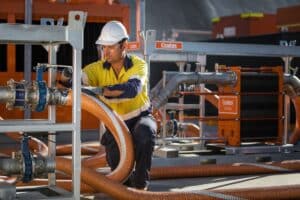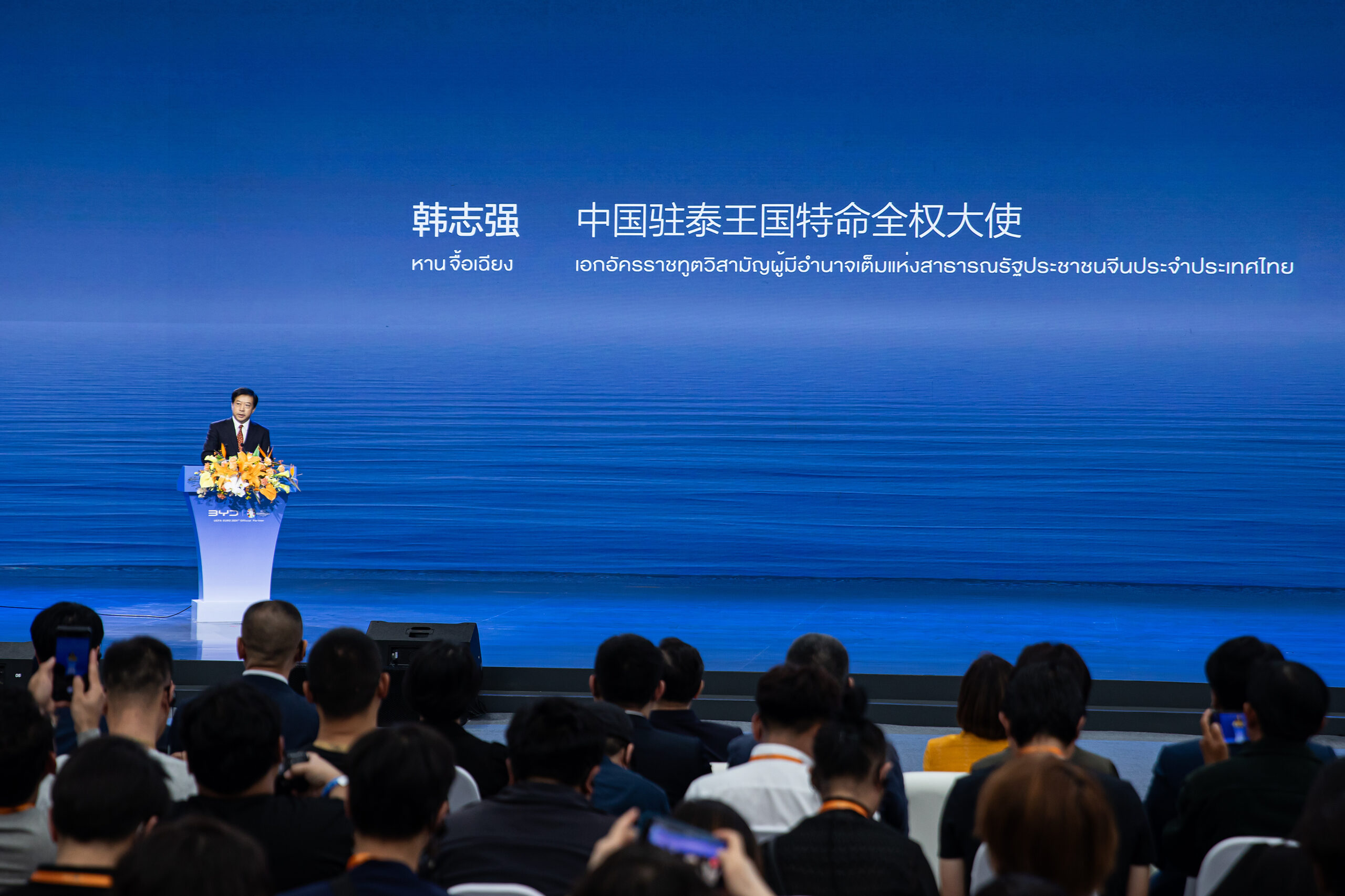From maintaining thermal comfort and personal safety, to enabling manufacturing, building and industrial processes, many businesses rely on temperature-controlled environments.
However, sudden changes in outside temperature, temperature control system failures, or increased heat demands may necessitate a temporary heating solution.
According to Coates power and HVAC (heating, ventilation, and air conditioning) manager Kurt Edwards, much of the support that Coates provides helps customers to resolve issues just like these.
“When customers are operating in temporary workspaces or with temperature-sensitive materials, temporary heating systems are often needed to help get the job done,” Edwards said.
“For example, most will know that chemical products produce heat as they ‘go off’ but these processes also require a suitable environment to get started. This is where heating systems can be used as a safety line to meet production deadlines.”
Ventilation is also important in chemical applications, especially when fresh air and exhaust systems are required, as low outside temperatures can put additional loads on heating equipment.

“We can introduce complex controls to maintain stable temperatures and optimal ventilation conditions regardless of outdoor temperature fluctuations,” Edwards said.
Temporary event spaces often require heating solutions too, particularly in marquees or halls that aren’t geared for climate control.
“When the temperature drops, various heating products can be hired to maintain a comfortable temperature,” Edwards said. “Our solutions specialists can advise on the most suitable equipment for your requirements.”
How can a temporary heating solution help you?
Temporary heating solutions can be configured in a variety of different ways to help customers:
- rapidly deploy a heating system following an equipment fault or breakdown
- provide heat to meet personnel safety standards
- support manufacturing and industrial applications that require fluids to be heated
- create the optimal environment for working with temperature-sensitive products and materials
- speed up processes like industrial drying and curing
- create a comfortable climate for temporary venues and large open plan working areas
- integrate additional heating with existing infrastructure where greater capacity is required.
Designing the right heating solution for your site
There are some important factors to consider when designing temporary heating solutions:
Heating requirement
Your choice of heating products depends on the size of the area you need to heat and the temperature range that needs to be maintained.
“Consider the use and construction of the space, how quickly you need to get it to temperature, and outdoor temperature variations,” Edwards said.
Capacity and scalability
Your temporary heating requirement may be shaped by the capacity of your existing temperature control system.
“Short or long term, Coates can supply a customised temporary solution to increase your heating capacity,” Edwards said.
Integration
Does your temporary heating solution need to integrate with any existing infrastructure?
“Many of Coates’ products work seamlessly alongside customers’ permanent temperature control systems, bringing additional capacity without the need for complex installation or integration,” Edwards said.
Air quality
Industrial processes that emit fumes have a significant ventilation requirement. A reliable supply of fresh air is also needed when large numbers of people gather in an enclosed space – how will you meet this need?
Space and noise
Diesel and gas fired furnaces provide relatively easy and low-cost heat but may not be suitable for indoor use due to the fumes emitted, so Coates’ electric blower heaters provide a clean alternative. Noise is another factor, depending on where and when your heating solution needs to operate.
Cost and efficiency
Accurately scoping and understanding your heating, ventilation and power requirements is key to designing an efficient and affordable temporary solution.

What products can be used to create a temporary heating solution?
Coates continues to grow its range of hire-ready heating products to meet customer demand, with a fleet that now includes:
- custom 21kW electric blower heaters: high-powered heaters that double as load banks for testing electrical equipment or commissioning cooling systems.
- hot water boilers: versatile units that can be combined with air handling units to heat large spaces or used with fluid heat exchangers to manage fluid temperatures. Hire single units up to 500kW (kilowatt), or multiple units to create megawatt heating systems.
- packaged air conditioners: up to 100kW capacity for ventilation and heating needs. Quiet and easy to install for rapid deployment.
- air handling units: single units up to 300kW capacity or arranged in parallel to scale up heating systems. Can recirculate air indoors for quick heating or provide high volumes of tempered fresh air from outside.
- custom-built heat pump chillers, pumps and heat exchangers: for year-round thermal control. Ideal for shoulder months, when heating may be required overnight and some cooling during the day.
“The breadth of Coates’ fleet enables us to provide efficient and cost-effective heating solutions for a diverse customer base with diverse needs,” Edwards said.
“This is backed by the deep product and industry knowledge of our mechanical and electrical engineering team, and field staff including solutions specialists and maintenance personnel.
“Urgency is common for temporary heating solutions. With branches in key locations across Australia, Coates provides the fast and responsive service that customers need.”
Subscribe to Australian Mining and receive the latest news on product announcements, industry developments, commodities and more.




